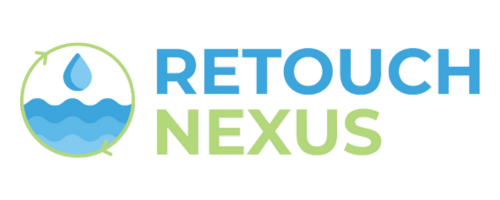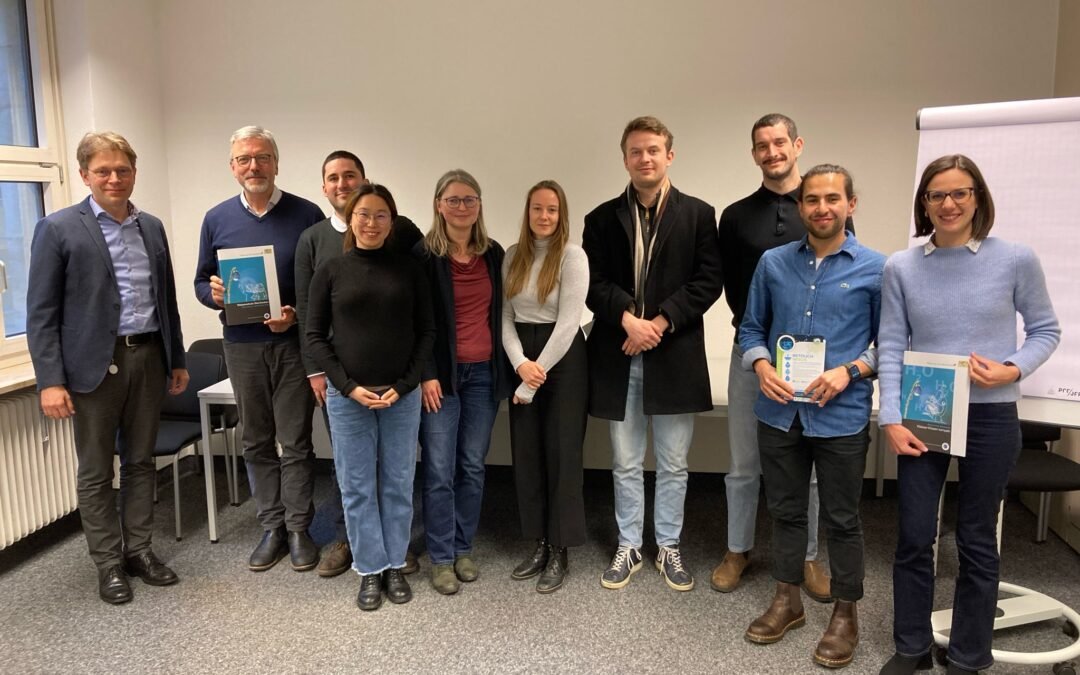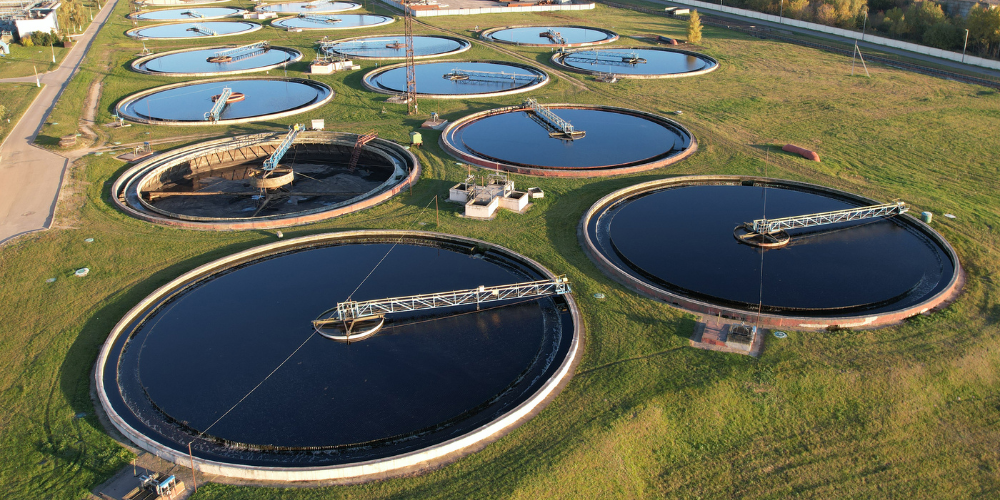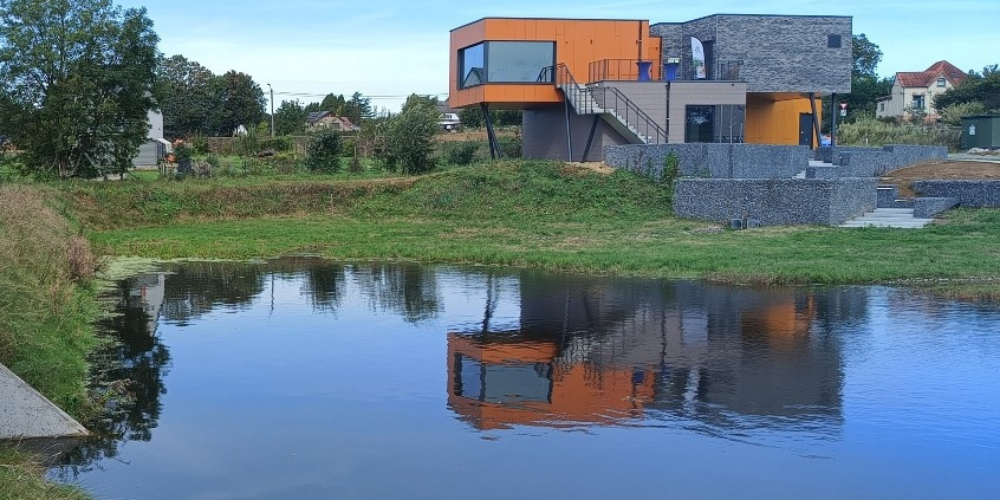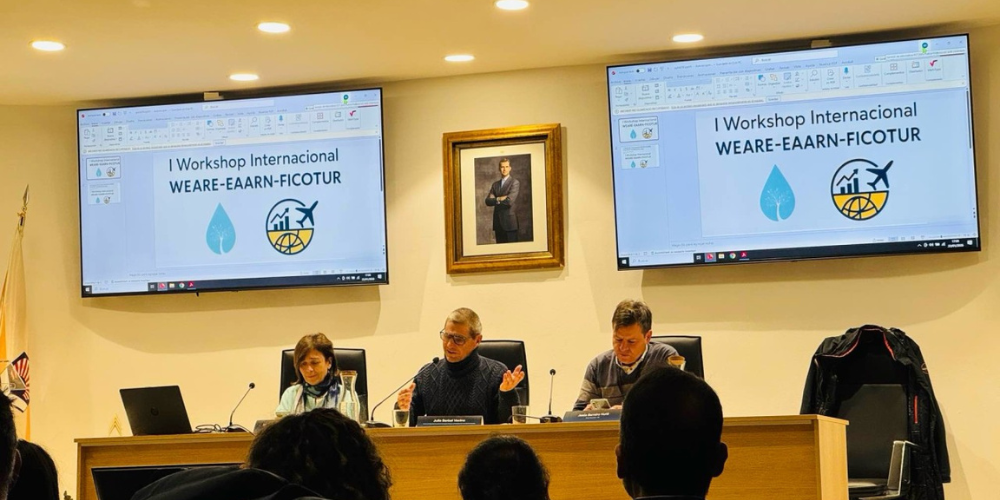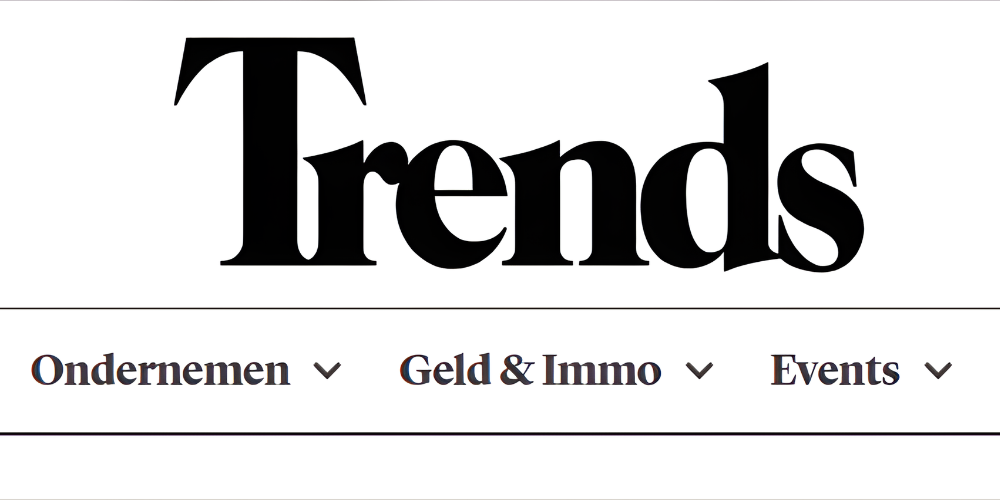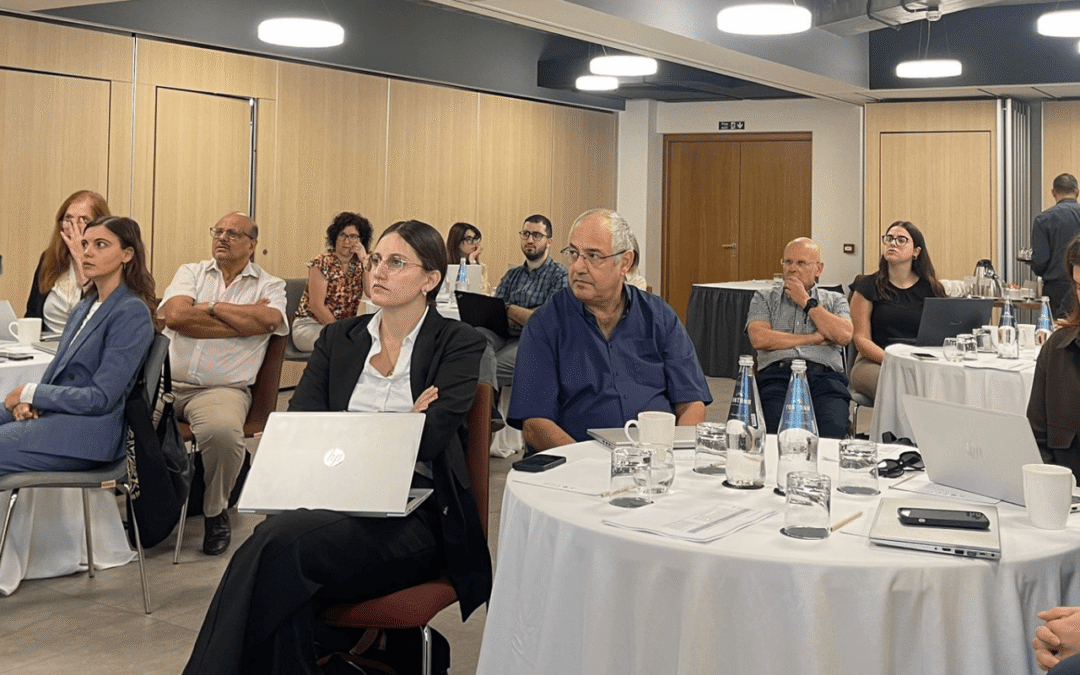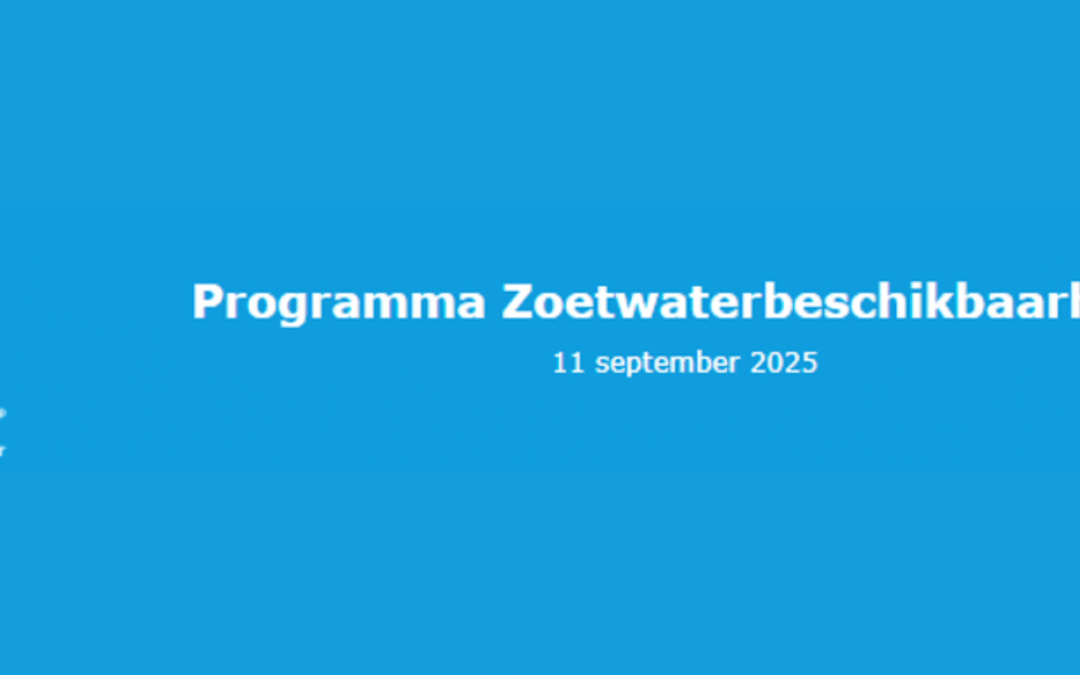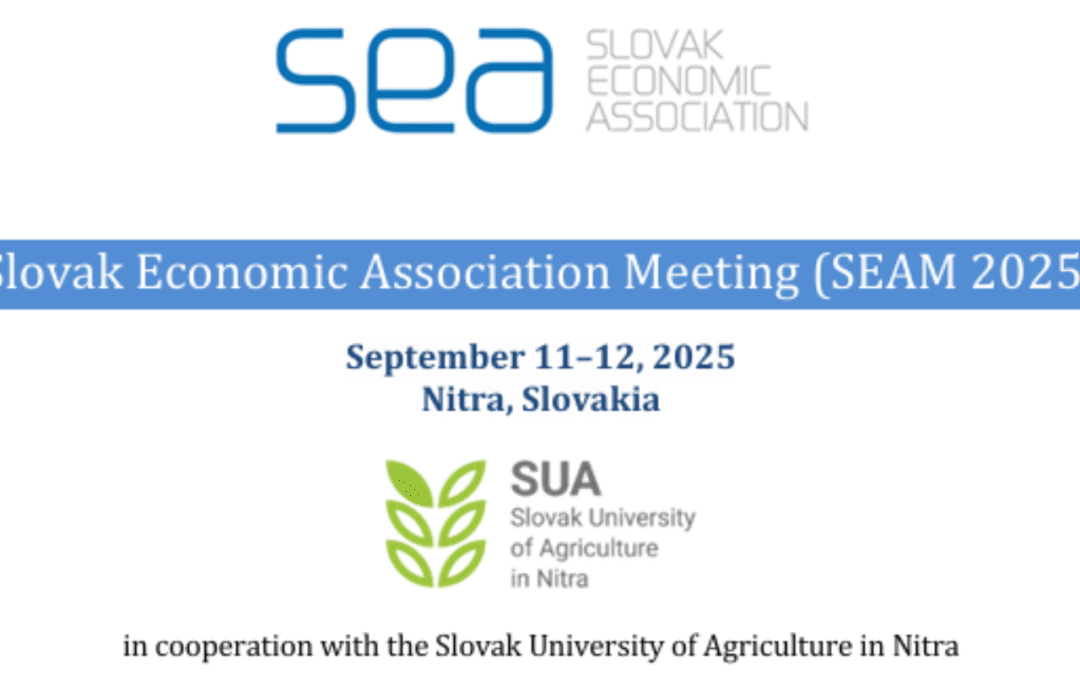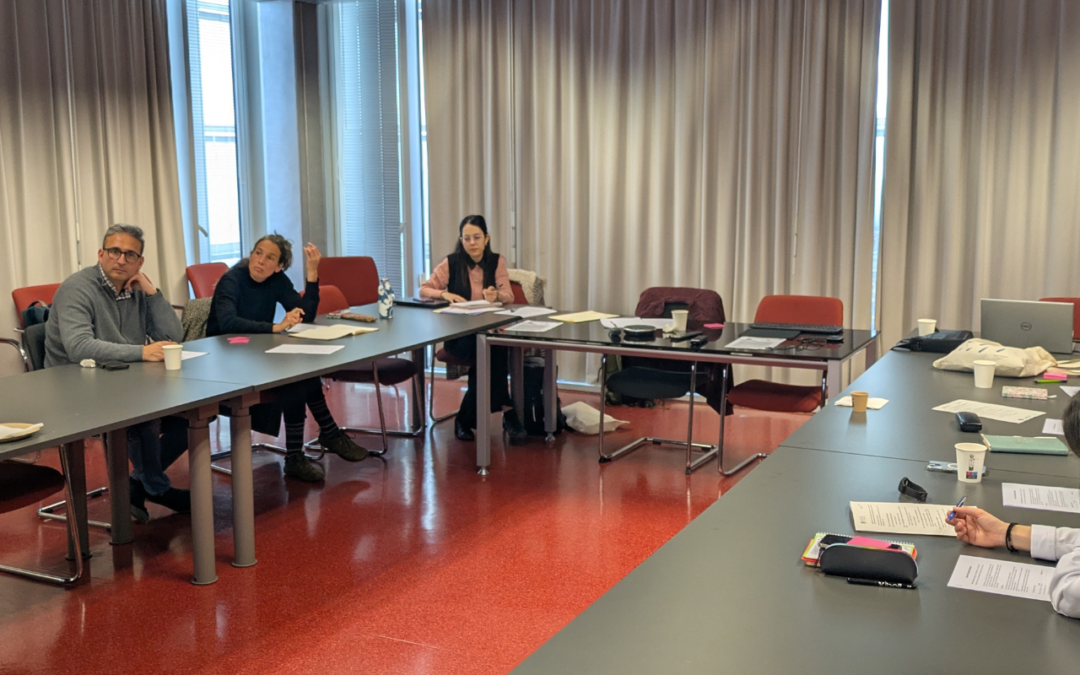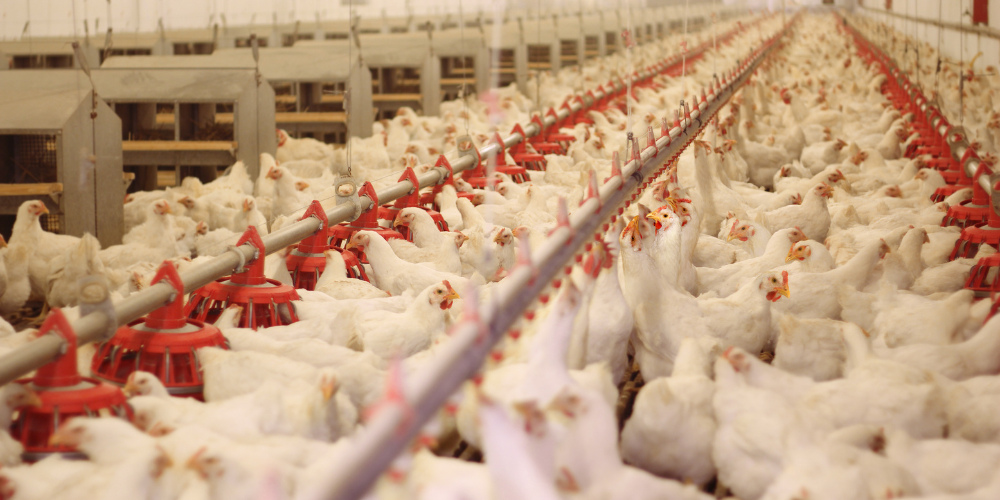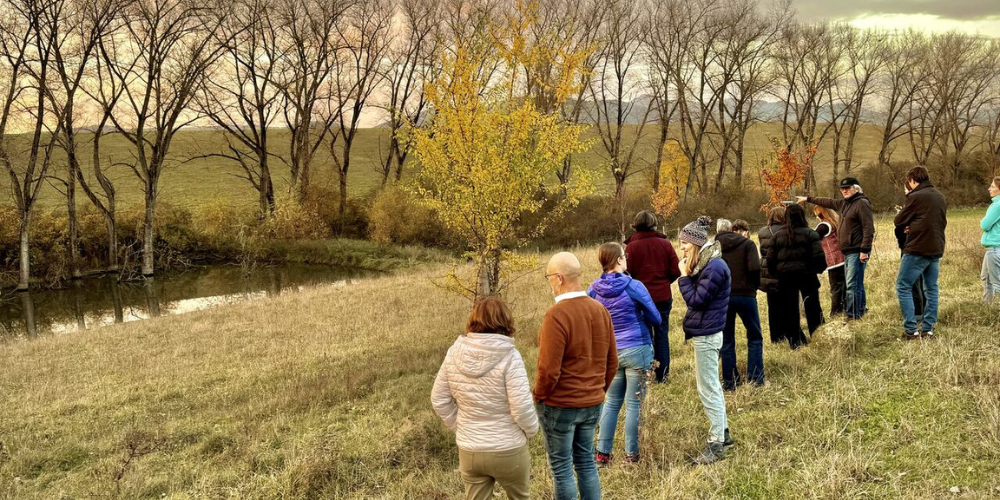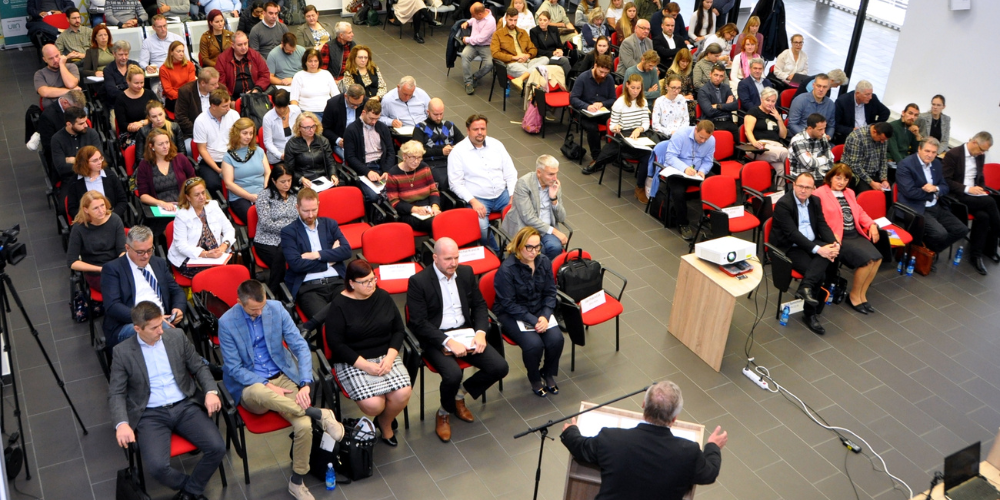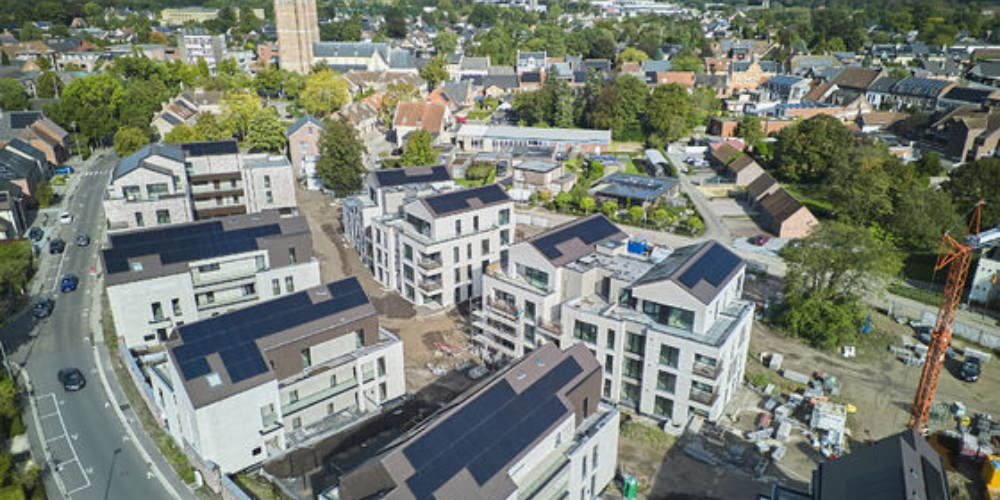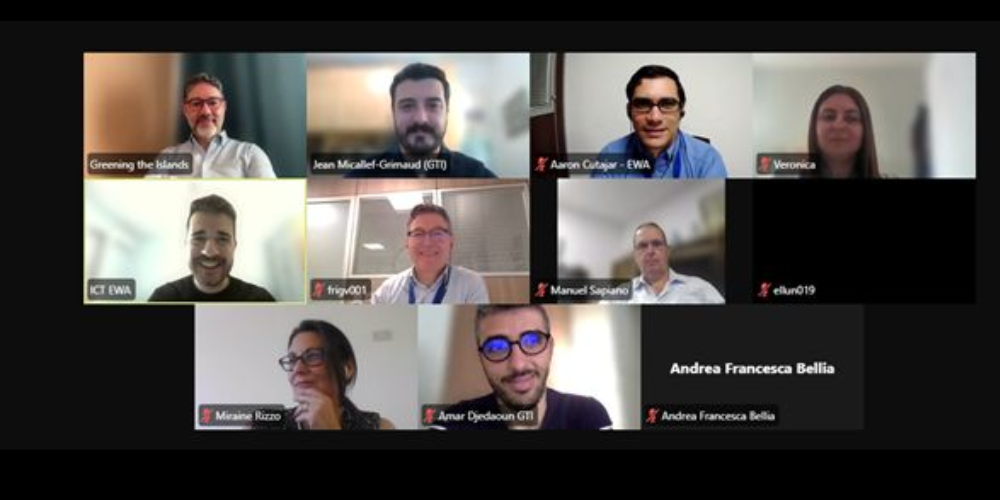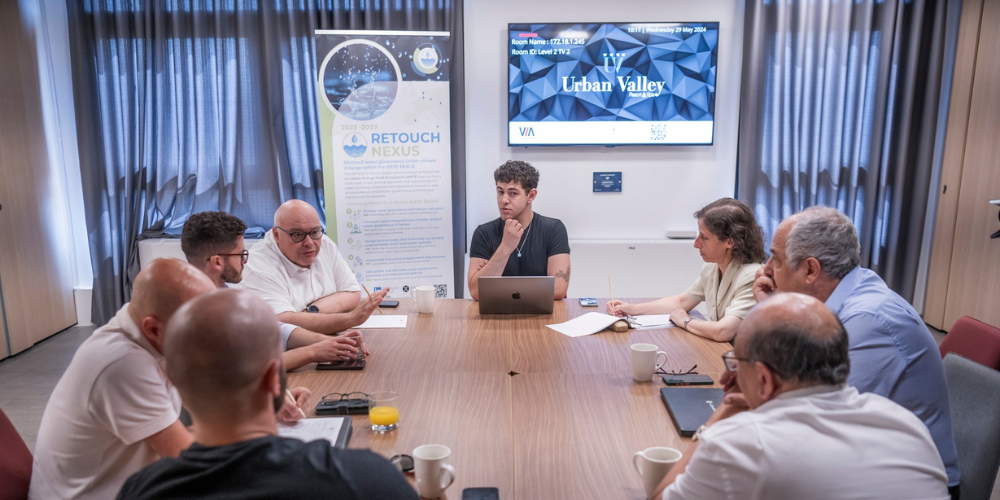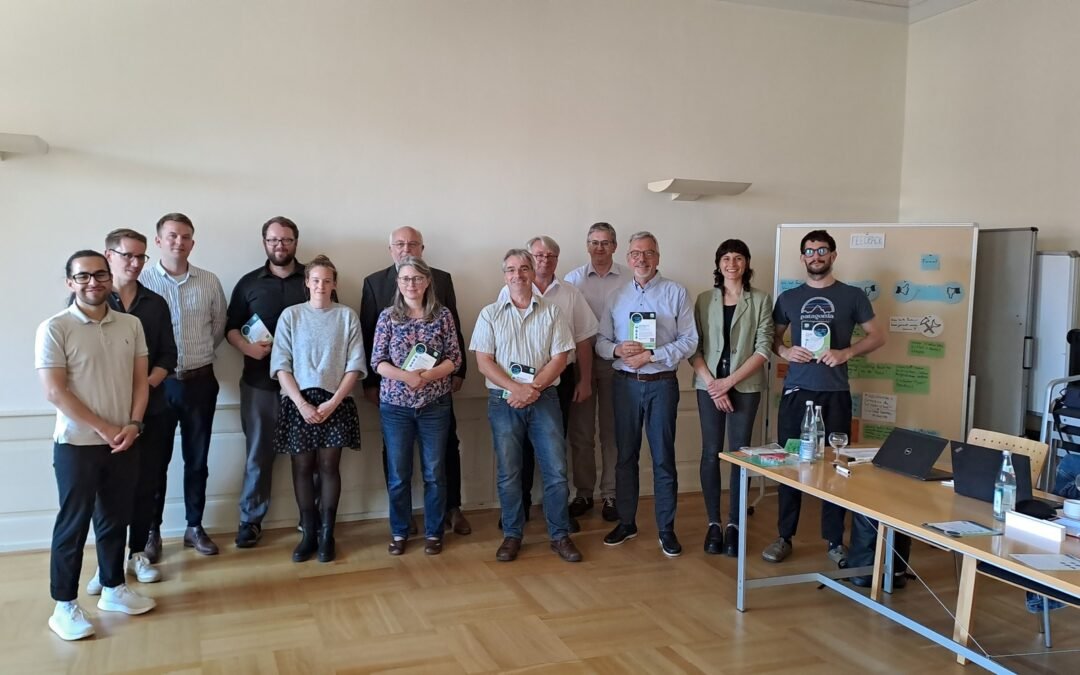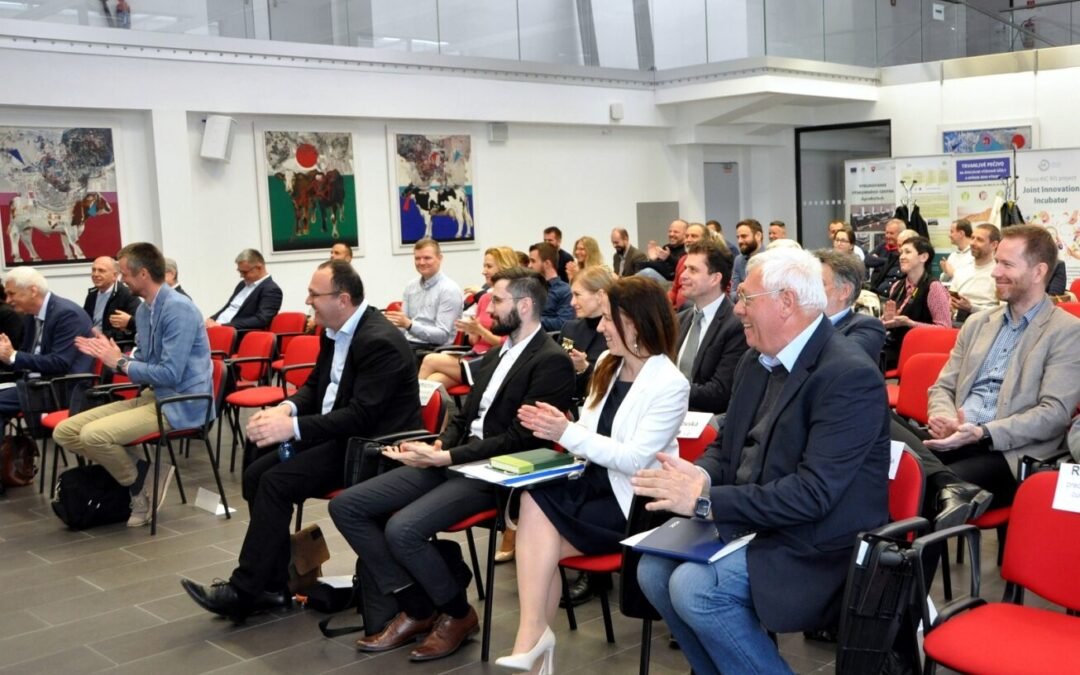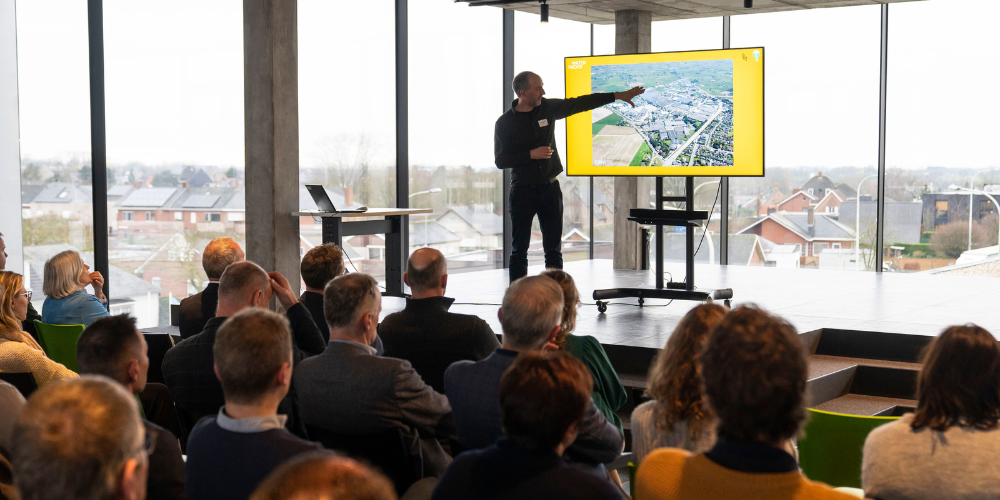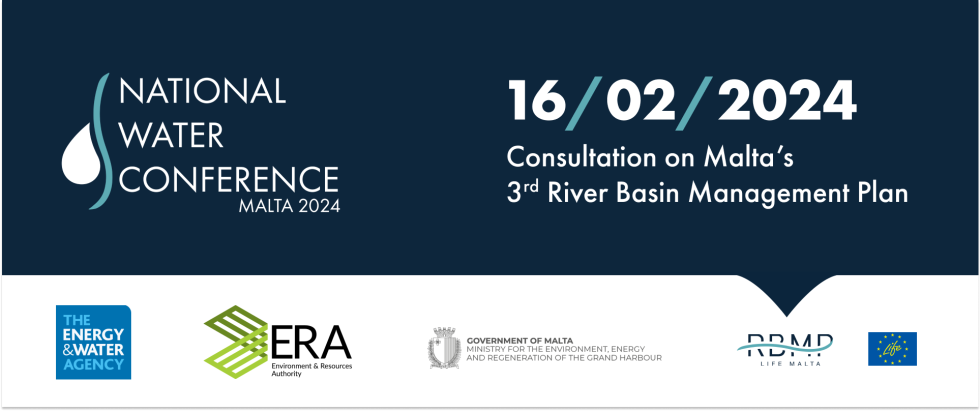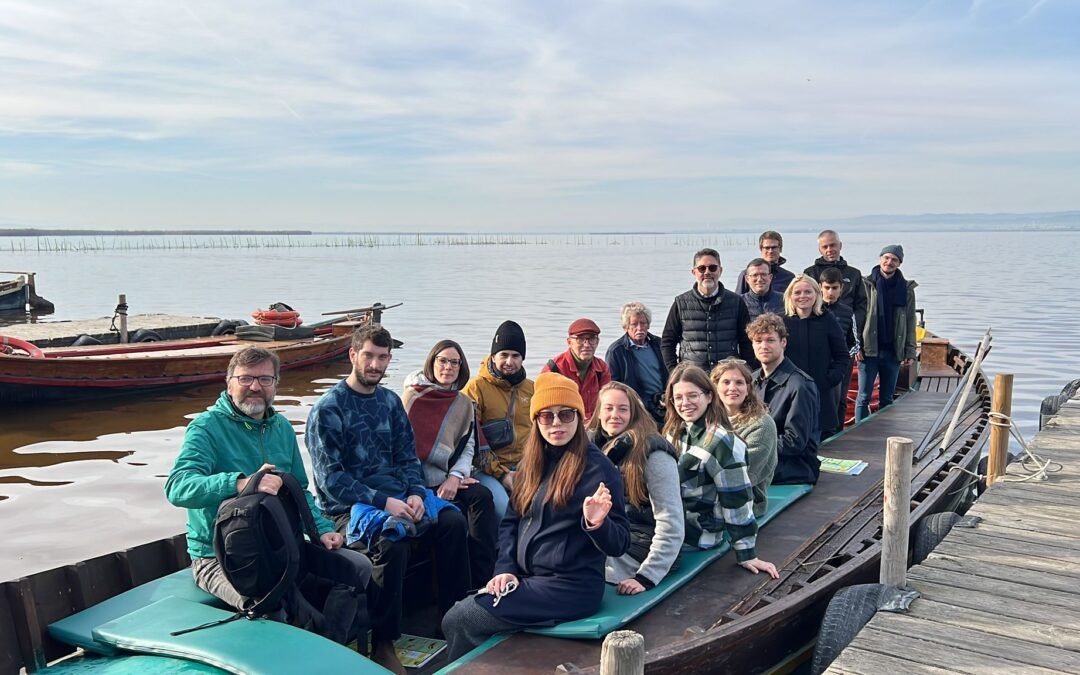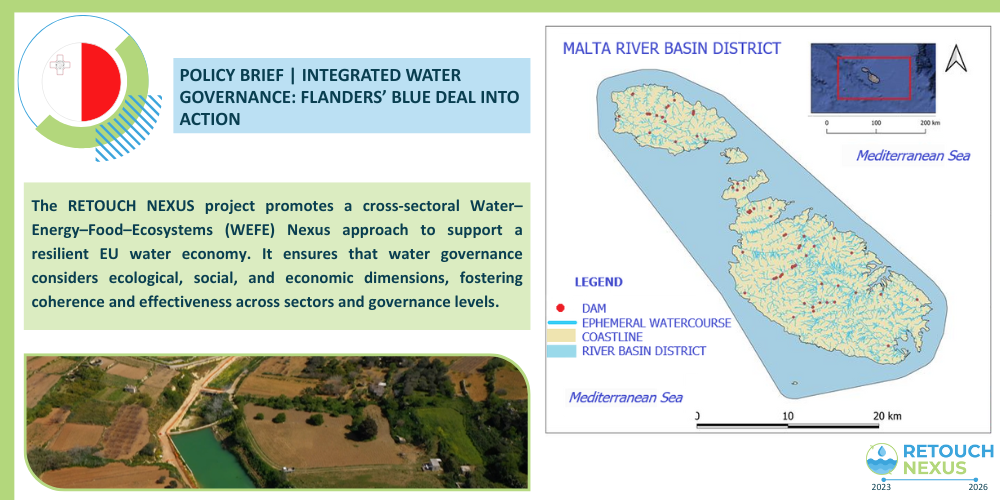onze laatste resultaten
RETOUCH NEXUS Resultatencentrum
Bekijk de meest recente mijlpalen, factsheets en deliverables die zijn gepubliceerd over veerkrachtig waterbeheer onder klimaatverandering.
Doel
Results Center Overview
Het RETOUCH NEXUS Results Center dient als een uitgebreide opslagplaats om beleidsmakers, onderzoekers en het algemene publiek te ondersteunen door gemakkelijk toegang te bieden tot waardevolle informatie over waterbeheer en klimaatverandering. Door verschillende kennisbronnen te consolideren, vergroot het resultatencentrum het begrip en vergemakkelijkt het geïnformeerde besluitvorming in waterbeheer.
our latest achievements
Milestones Achieved by our Team
Case study visits
New Policy Brief: Water resilience is built with better water governance
Unlocking Water Resilience: Read Our Policy Brief on Better Governance Europe must enhance water resilience through better governance to address…
RETOUCH NEXUS project coordinator (TUM) visits German Case Study in Bayreuth
On 22 February 2024, a delegation from TUM visited representatives from the German Upper Main government. During the meeting, the…
Establishing a baseline to characterise each RETOUCH NEXUS case study
Last September, our project completed two tasks aimed at exploring water governance models, institutional frameworks and economic, financial and commercial…
A new milestone has been reached: the installation and connection of the rainwater treatment plant!
A major milestone was reached last September at the Keiberg-Vossem industrial park, with the installation and connection of the rainwater…
Case study workshops
RETOUCH NEXUS Presented at the International Workshop WEARE-EAARN-FICOTUR in Córdoba
RETOUCH NEXUS was represented at the International Workshop WEARE-EAARN-FICOTUR: Establishing Networks, held on 22–23 January 2026 in Córdoba, Spain, within the session “Instruments and Policies…
Belgian Case Study Takes Center Stage: Agnetenpark’s Innovative Water System Featured on National Television
RETOUCH NEXUS project demonstrates practical water solutions through media engagement. When most people think about saving water, they imagine shorter…
💧 Strengthening Stakeholder Engagement in Malta – RETOUCH NEXUS Workshop on the WEFE Nexus Ranking System
In October 2025, the Energy and Water Agency (EWA) hosted a new RETOUCH NEXUS Stakeholder Project Meeting in Malta, bringing…
Informative evening for HHNK’s Freshwater Availability Programme
On Thursday, 11 September, the water authority Hoogheemraadschap Hollands Noorderkwartier (HHNK) held an information evening as part of the public…
RETOUCH NEXUS at SEAM 2025 – Advancing Water-Energy-Food-Ecosystem Governance in Slovakia
Nitra, Slovakia | September 11-12, 2025 The RETOUCH NEXUS project is proud to participate in the Slovak Economic Association Meeting…
🤝 Building a Participatory Path for Water Governance in North Holland
RETOUCH NEXUS supports stakeholder engagement for the Freshwater Availability Program. In response to the growing threat of water scarcity in…
🌊 Achieving Water Benefits at Business Parks – A RETOUCH NEXUS Belgian Case Study Event
On 20th June 2025, VITO, together with the City of Ghent, North Sea Port and VLAIO organized an interactive event…
🌿 Nature-Based Solutions in Action: Local Engagement for Water Resilience in Kulmbach and Leuchau
On 18–19 June 2025, our German Case Study hosted two workshops in the Upper Main region (Germany) to promote, validate,…
Valencia Hosts Key Workshop on Climate Change Adaptation in the Júcar River Basin
Experts, policymakers, and environmental stakeholders gathered on April 4th at the IIAMA-UPV headquarters in Valencia for a workshop titled “Adapting…
Promoting Stakeholder Engagement for Improved Water Management in Flanders with the Flemish Poultry Test Farm
The RETOUCH NEXUS project is excited to announce an upcoming stakeholder engagement activity as part of the Belgian Case Study…
Dialogforum Wasserkontroversen IV: Water Retention in the Landscape – Feasibility, Ecological Benefits, and Legal Implications
The "Wasserkontroversen" dialog forum, a key event in the ongoing discussion of water-related issues, took place on November 8, 2024,…
RETOUCH NEXUS at the Slovak Water Tour 2024: Advancing Nature-Based Solutions for Resilient Water Management
From October 28 to 31, 2024, the Slovak Water Tour brought together experts from across Europe to explore the regeneration…
Second Workshop Organized by SUA: Enhancing Inclusive Stakeholder Engagement!
The RETOUCH NEXUS project recently celebrated a significant milestone with the successful hosting of its second training session organized by…
Resident Information Session on Sustainable Water Systems at Agnetenpark Peer
On September 3, 2024, a resident information meeting was held at Peer Library, bringing together the future co-owners of Agnetenpark…
Promoting Collaboration : Highlights from the 4th Maltese Stakeholder Engagement Meeting!
We are thrilled to announce the successful conclusion of the 4th Stakeholder Engagement Meeting for the RETOUCH NEXUS project! Over…
Innovative Water Management: Site Visit to Business Park Tielt Noord
On August 23, 2024, the RETOUCH NEXUS Belgium case study hosted a stakeholder event at Tielt Noord Business Park, attracting…
The Maltese case study of the RETOUCH NEXUS project held its Third stakeholder engagement workshop!
Our Maltese case-study leader, The Energy and Water Agency held its third Stakeholder Engagement Workshop on July 12, 2024! The…
The Maltese case study of the RETOUCH NEXUS project held its Second stakeholder engagement workshop!
Our Maltese case study leader, The Energy and Water Agency was more than excited to welcome key stakeholders to a…
RETOUCH NEXUS German Case Study at the SWAT Conference: Pioneering WEFE-Based Modeling for Resilient Water Governance in the Upper Main Catchment
From July 8th to 12th, 2024, the RETOUCH NEXUS project proudly participated in the SWAT Conference held at the National…
The German case study of the RETOUCH NEXUS project held its First stakeholder engagement in Upper Main!
On 25 June 2024, the German case study of the RETOUCH NEXUS project hosted its first stakeholder engagement workshop in…
Visit to the WaterProof Experience Container: A Collaborative Exchange for the RETOUCH NEXUS Project
On Tuesday, June 18, 2024, representatives from various RETOUCH project case studies gathered in Ostend for a unique visit to…
The Slovak case study of the RETOUCH NEXUS project held its first stakeholder workshop on climate-resilient water management for agriculture, citizens and ecosystems!
The Slovak case study of the RETOUCH NEXUS project recently hosted its inaugural stakeholder workshop, focusing on climate-resilient water management…
The Belgian case study of the RETOUCH NEXUS project held its First stakeholder engagement workshop!
Our Belgian case study leader, Vlaamse Instelling voor Technologisch Onderzoek (VITO) was more than happy to kick off its activities,…
RETOUCH Nexus Unveiled at Malta’s First National Water Conference
Malta hosted its inaugural National Water Conference on Friday, February 16, 2024, marking a significant milestone in the island's water…
Let’s meet around breaksfast to discover the Maltese case study!
The Energy and Water Agency (EWA) recently launched the stakeholder engagement process for the RETOUCH Nexus project with a successful…
2nd General Assembly meeting: time to explore las aguas de Valencia!
One year after the launch of the RETOUCH NEXUS project, what a thrill it is to celebrate the start of…
Enhancing Water Management Comprehension
Supporting Informed Decisions Through Policy Briefs
New Policy Brief: Pathways Towards Improved Integrated Water Governance in Malta
Integrated Water Governance in Flanders Malta confronts unique water governance challenges as a small, densely populated Mediterranean island with no…
Explore Our Comprehensive Resources
Factsheets
D1.1 Factsheet on economic instrument development across Europe
This document aims to provide additional information about the economic instruments studied for the European water context and support previously displayed factsheets. The information offered is the result of the collective analysis of the researchers involved in the RETOUCH NEXUS project.
D1.2 Comparative analysis of national and transboundary water governance strategies focusing on priorities and mechanisms of sectoral alignment
The report assesses current governance strategies and institutional set-ups to deal with water-related risks in the EU using the lens of the WEFE nexus. Furthermore, it identifies several opportunities that may facilitate a shift towards increased coordination in water-related governance.
D2.2 Factsheets on Good Practices and Innovative Tools for Stakeholder Engagement and Public Participation
The fact sheets highlight eight engagement mechanisms including 40 good practices and innovative approaches associated with OECD principles, derived from ongoing initiatives in Europe and elsewhere.
Explore Our Comprehensive Resources
Deliverables
D1.1 Factsheet on economic instrument development across Europe
This document aims to provide additional information about the economic instruments studied for the European water context and support previously displayed factsheets. The information offered is the result of the collective analysis of the researchers involved in the RETOUCH NEXUS project.
D1.2 Comparative analysis of national and transboundary water governance strategies focusing on priorities and mechanisms of sectoral alignment
The report assesses current governance strategies and institutional set-ups to deal with water-related risks in the EU using the lens of the WEFE nexus. Furthermore, it identifies several opportunities that may facilitate a shift towards increased coordination in water-related governance. These opportunities are organized into seven categories: new priorities, new policies, new concepts, new tools, new roles and tasks, new cooperations, and new sources of funding. The report is accompanied by a series of factsheets for all 27 EU Member States.
D1.3 List of Water Governance Indicators
One of the RETOUCH NEXUS project objectives is to provide a collection of existing and new indicators for monitoring water governance building on the existing OECD water governance indicator framework. RETOUCH NEXUS aims to use the multi-level and cross-sectoral nature of the Water-Energy-Food-Ecosystems (WEFE) Nexus to propose a list of indicators that allow assessing water governance over different spatial and temporal scales. First, across temporal scales, an intervention may have impacts over the short, medium and long term. Second, across a spatial scale, an intervention may deliver downward cascading impacts from its implementation at a larger scale (top-down impacts) or upward impacts resulting from up-scaling local practices (bottom-up impacts).
D1.4 Available data, data gaps and their implications
This document outlines Task 1.4 of the RETOUCH NEXUS Project, focusing on developing a data and monitoring framework for water governance. Building on previous work (Task 1.3), it refines a set of indicators and proposes a monitoring framework that incorporates the OECD water governance indicators while adding metrics to assess policy outcomes and the Water, Energy, Food, and Ecosystems (WEFE) Nexus. The framework guides decision-making in water allocation and management by identifying relevant indicators and publicly available data sources, with strategies for both quantitative and qualitative assessment. The report concludes that while national-level water governance can be effectively monitored using available data, challenges exist at local scales due to data limitations. The indicators will be applied in six case studies under RETOUCH NEXUS to address these gaps.
D2.1 Mapping of stakeholders and engagement mechanisms in RETOUCH NEXUS case studies and at European level
These factsheets serve as informative resources for the RETOUCH NEXUS case studies, highlighting a collection of effective practices and innovative approaches derived from ongoing initiatives in Europe and elsewhere. The factsheets include eight engagement mechanisms capturing a total of 40 good practices and innovative approaches. adelphi reviewed various engagmeent mechanisms with examples to develop the fact sheets. One of the case studies inlcuded is Living Labs from GOVAQUA , which is a sister project of RETOUCH NEXUS un EU Horizon funds.
D2.2 Factsheeats on Good Practices and Innovative Tools for Stakeholder Engagement and Public Participation
This deliverable compiles a series of factsheets presenting good practices and innovative tools for engaging stakeholders and the public in water governance. It aims to support the RETOUCH NEXUS case studies by providing practical recommendations and examples of participatory approaches. The factsheets cover eight key engagement mechanisms: Citizen Science, Creative Collaborative Events, E-Participation, Living Labs, Financial and Economic Mechanisms, Inclusive Engagement (with a focus on gender and youth), Legal Mechanisms, and Motivation and Leadership. These engagement strategies align with OECD principles on stakeholder participation and are designed to enhance co-creation and collaborative decision-making in the WEFE Nexus.
D2.3 Roadmap for stakeholder & citizen engagement in case studies
The Stakeholder Engagement Roadmap (SER) guides the RETOUCH NEXUS project in addressing water, energy, food, and ecosystem (WEFE) challenges. It promotes integrated, sustainable governance through innovative engagement mechanisms, inclusivity for vulnerable groups, open science practices, and ethical data management. The GTI app facilitates knowledge sharing and stakeholder involvement, adapting as needed during implementation.
D2.4 Activities, Approaches, and Guidelines for Inclusive Capacity Development in WEFE Nexus Governance
Deliverable D2.4 documents and analyses the activities, approaches, and guidelines developed within RETOUCH NEXUS to support inclusive capacity development in Water–Energy–Food–Ecosystems (WEFE) Nexus governance. It consolidates the experiences of case study engagement with stakeholders, training initiatives, and Communities of Practice (CoPs), while offering practical tools and lessons that can be replicated and scaled across EU contexts.
D3.1 White Paper on Evaluation and Implications of Economic Instruments under a WEFE Perspective
This deliverable provides an in-depth analysis of economic instruments for water governance within the Water-Energy-Food-Ecosystems (WEFE) Nexus. By examining six European case studies, it explores policy challenges and potential solutions for integrating the WEFE perspective into economic models. The report assesses hydrological, hydro-economic, and cost-benefit models to evaluate the efficiency and sustainability of economic instruments, such as water pricing, subsidies, and payments for ecosystem services. With a focus on real-world applications, it offers insights to enhance policy coherence and improve resource management strategies in the context of climate change and water scarcity.
D4.1 Case studies dashboard on baseline, governance practices and performance evaluation
This report describes the process of the creation of the dashboard for task T4.1 in the RETOUCH NEXUS project and it presents the most recent versions of the screens of the dashboard (their design may be still subject to change). Each dashboard screen is devoted to one partial aspect of water governance. In this report, also an accompanying description of the main findings for the RETOUCH NEXUS case
studies is given.
D4.2 Comparative analysis on policy coordination arrangements and options for improvement
This report assesses water governance fragmentation in six RETOUCH NEXUS countries, examining the lack of coherence across governmental levels and sectors like water, energy, food, and ecosystems. It highlights various initiatives aimed at improving coordination, resulting in new governance concepts and tools for better management. Despite progress, the report identifies areas needing improvement, including local-level coordination, stakeholder involvement, capacity building, and fostering experimentation spaces.
D4.3 Case-study based assessment of the efficacy of society-centred approaches
This report presents a comparative, case-study-based assessment of innovative water governance practices across the six European countries and cases that from part of the RETOUCH Nexus project – Belgium, Germany, Malta, the Netherlands, Slovakia, and Spain. The report’s primary aim is to assess and evaluate the efficacy of society-centred and innovative governance schemes and practices, depicting how they act and relate to each other, showing how they emerge, develop, engage with stakeholders, and influence decision-making structures.
